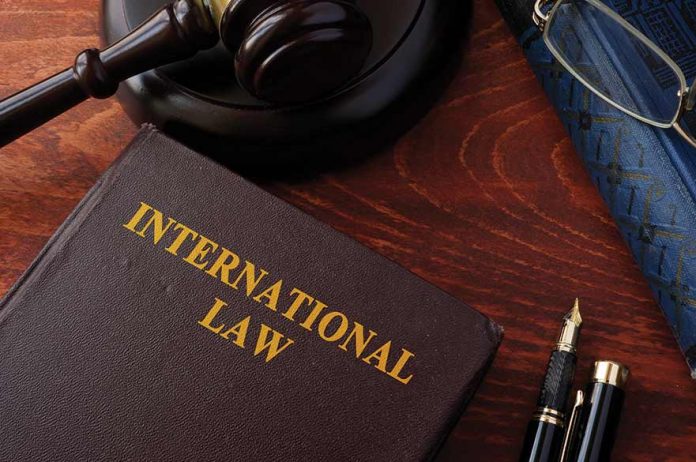This article is written by Aditi Aggarwal, from Symbiosis Law School, Noida. The article discusses the recent developments in international laws, specifically focusing on two major developments that took place in the year 2018.
Table of Contents
Introduction
It was not many years ago that individuals as victims of crimes of aggression were not recognised nor there was a detailed interpretation of the human right to life under international law. Recent developments in international laws (as in 2018) aimed to depart from this approach.
Two developments will be discussed in this article. The first development is by the International Criminal Court (ICC) which activated its jurisdiction over the crime of aggression, imposing criminal liability on individual leaders and therefore, became the fourth core crime to be tried at the ICC. The second development is by the United Nations Human Rights Committee that determined General Comment No. 36 for giving a wider interpretation of Article 6 mentioned under the International Covenant on Civil and Political Rights. One of the determinations was that if an act of aggression results in deprivation of human life, then it is a violation of Article 6.
Activation of jurisdiction of the ICC over the crime of aggression
The crime of aggression was made the fourth core crime under the ICC’s jurisdiction on 15 December 2017 at the headquarters of the United Nations in New York. This revolutionary move allowed the International Criminal Court to persecute leaders who wage aggressive wars and make them criminally liable at an individual level.
Definition of the crime of aggression
‘Crime of aggression; is defined under Article 8 bis³ of the Rome Statute of the International Criminal Court in the following way:
- It means a person doing any of the following four activities:
- Preparation
- Execution
- Initiation
- Planning
- Further, it is written that the person should be in such a position so as to direct or control a State’s military or political action to commit an act of aggression.
- That crime should be the one that constitutes the Charter of the United Nations’ manifest violation.
- That violation can be judged by the crime’s scale, gravity, or character.
One thing that should be noted here is that this definition is given only for the purposes of the particular statute under which it is defined i.e. the Rome Statute of the International Criminal Court.
The next question that comes to one’s mind after going through the above definition is what does ‘act of aggression ’ mean then.
It is defined as an act done by State, wherein it uses:
- Armed forces against the territorial, sovereign integrity or
- Another state’s political independence or
- In any other way that is violative of the United Nations Charter.
How was the crime of aggression adopted by the ICC
When the Rome Statute was enacted in 1998, aggression was one of the four crimes mentioned in the treaty. The fulfilment of the definition and terms of jurisdiction, on the other hand, was postponed to negotiate further. A definition of ‘crime of aggression’ was adopted by the member states of ICC in 2010 along with the crime’s jurisdiction, which was finally updated in 2017 by the Assembly of States Parties (ASP).
After ten days of intensive diplomatic negotiations that lasted into the early hours of December 15, 2017, the resolution on the crime of aggression was adopted. ASP 16 was entrusted with activation after ICC member states agreed on the definition of the crime at a review meeting in Kampala in 2010.
Application of the jurisdiction of the ICC
During the negotiations, states had a divided opinion on the question of jurisdiction that would be applied to all the member states of the ICC after 30 states would ratify it or would it be applied only to these states who would ratify it.
There were two views regarding the same, which are discussed as follows:
- Once the ratification is done and ASP has taken the decision, the jurisdiction would be applied to all the member states, notwithstanding the status of ratification of each State separately. The only exception discussed here was that the jurisdiction would not apply if a state submits an opt-out declaration.
- A counter-argument was also offered, stating that the court’s jurisdiction over the crime of aggression is limited to ICC member nations that have the amendments ratified.
The first view was held by the plurality of the member states.
Dual nature of ICC’s mandate
Ending the impunity for the most serious crimes under the international law
The first aim that the ICC is to achieve through its mandate, is the ending of impunity or escapism from punishment for crimes done at an international level with a two-fold purpose, that is:
- For upholding the international criminal law and strengthening the core value of the society protected by it.
- For sending the word across the leaders of the world that those who commit crimes under their jurisdiction will not get away with it.
Preventive function
The ICC tries to prevent the problems i.e. the court has a preventive function that involves
timely intervening in situations where:
- there is an indictment of future crimes within its jurisdiction or
- where crimes like that are already being committed.
It is to be noted that the ICC Prosecutor performs this duty largely through preliminary examinations, which encompass a wide variety of situations.
Exercise of the jurisdiction over the crime of aggression
The provision of the jurisdiction’s exercise is given under Article 15 bis and Article 15 ter of the Rome Statute of the International Criminal Court, which is discussed as follows:
Article 15
Under this specific article, the crime of aggression’s exercise of jurisdiction with respect to state referrals and proprio motu (investigation initiated by the prosecutor) are discussed, which is as follows:
- The court can only have jurisdiction over crimes of aggression committed one year after thirty States parties have ratified or accepted the amendments.
- If the prosecutor determines that there is a legitimate basis to pursue an inquiry into a crime of aggression, he or she must first determine if the Security Council has determined that the State in question has committed an act of aggression.
- The prosecutor shall inform the United Nations Secretary-General of the position before the court, along with providing any document and information that are relevant.
- After a determination by the Security Council, the prosecutor can then investigate the matter. The prosecutor may proceed without the determination if it is not made within six months after the notification’s date. The only condition, in this case, is that the Pre-Trial Division must have authorized the investigation to be commenced.
- An external organ’s judgment of an act of aggression shall not be prejudicial to the court’s own findings under the Statute.
Article 15
Under this specific article, the exercise of jurisdiction of the ICC is discussed with regard to a UN Security Council referral. According to it, if the UN Security Council refers to a situation the prosecutor has the authority to investigate any of the four core crimes, including the crime of aggression, committed in any territory by any state’s citizen.
General Comment 36 added by the UN Human Rights Committee: the second development
Through its expanding jurisprudence on the right to life, the UN Human Rights Committee has given advocates on economic and social rights a powerful new enforcement tool.
With its recent General Comment No. 36 on the right to life provided under Article 6 of the International Covenant on Civil and Political Rights, the Committee has contributed in a significant way to justify human rights at both the national and international levels.
The United Nations Human Rights Committee acknowledges that any deprivation of life as a result of an act of aggression is a violation of Article 6 of the International Covenant on Civil and Political Rights, which identifies a previously ignored class of victims.
What does Article 6 say?
Article 6 comprises six paragraphs, which are briefly described as follows:
- Article 6 paragraph 1 of the International Covenant on Civil and Political Rights enshrines the right to life as the inherent right to life is vested with every human being, that shall be given protection by the law and that no human being’s life shall be unjustly deprived.
- The punishment of the death sentence is discussed in the next four paragraphs, with paragraph 3 establishing a link between the crime of genocide and the deprivation of life, and forbidding deviation from any obligation assumed under the Convention on the Prevention and Punishment of the Crime of Genocide.
Apart from Article 6 of the International Covenant on Civil and Political Rights. The right to life is enshrined under Article 3 of the Universal Declaration of Human Rights (UDHR) as: “Everyone has the right to life, liberty, and security of person.”
Certain aspects discussed and obligations imposed under the General Comment No. 36
- Under General Comment 36, the committee recognized that the right to life’s modern world understanding needs engagement with addressing a large number of threats relating to social, environmental, and economic aspects to life which many people face worldwide on a daily basis. The focus of the comment is on issues like healthcare, climate change, housing, environmental degradation, and encouraging sustainable development.
- In the above view, the committee makes it a duty of the States parties to take necessary measures for addressing the society’s general issues. It also assured that general societal circumstances are required to preserve the right to a dignified existence.
- The comment discussed that the right to life is that one right that should be interpreted at a wider level. In this regard, it mentions that the right is concerned with providing every individual freedom from the omissions and acts that may or intend to cause premature or unnatural death along with a life of dignity and its enjoyment to the fullest.
- Further, it says that the right provided to humans under Article 6 guarantees the right to life to even the persons who are suspected or convicted of the most serious crimes across the world.
- With regard to international law, the comment highlights that the deprivation of life inconsistent with any domestic or international law is arbitrary.
- It obligates States to ensure legal and safe abortions along with ensuring the sale and development of weapons and activities that are extra-territorial.
- Police brutality and nuclear weapons are some other issues that have been discussed under the comment.
- The comment also highlights that a State using the death penalty as a punishment for any crime except intentional killings is a violation of the right to life. It also reinforces that states that have abolished the death penalty are not allowed to reinstate it and that states are not allowed to execute those who were under the age of 18 at the time of the offence.
Conclusion
The two developments provide a way to a better world as far as criminal and constitutional law at an international level is concerned. However, the organizations and the ICC have to take utmost diligence in imposing the liability on someone or deterring someone because obligations are not fulfilled. As much as doing the right thing is important, focusing on not doing any wrong thing is equally important.
Along with focusing on upkeeping the laws, the focus should be on two points that no innocent get convicted and no convicted individual is convicted inconsistent with legal backing.
References
- https://ijrcenter.org/2018/11/20/un-human-rights-committee-clarifies-expands-guidance-on-right-to-life/
- https://international-review.icrc.org/articles/protecting-right-life-protracted-conflicts-ir912
LawSikho has created a telegram group for exchanging legal knowledge, referrals, and various opportunities. You can click on this link and join:
 Serato DJ Crack 2025Serato DJ PRO Crack
Serato DJ Crack 2025Serato DJ PRO Crack











 Allow notifications
Allow notifications


